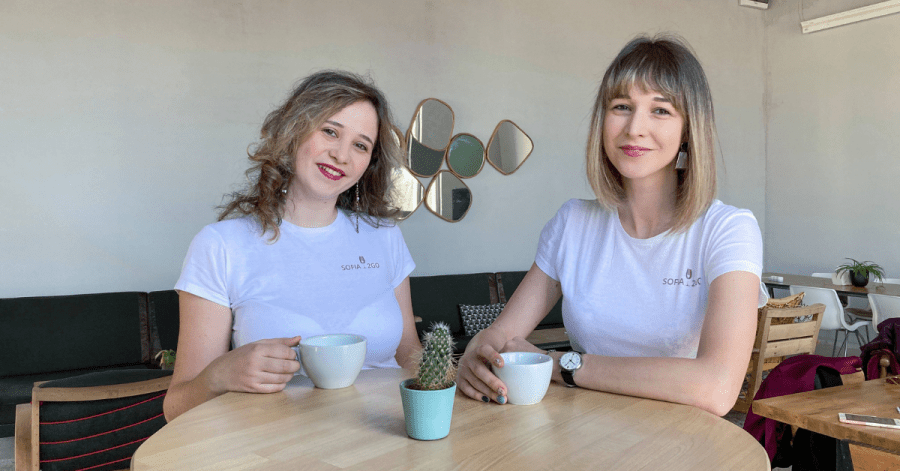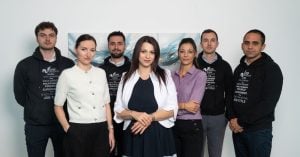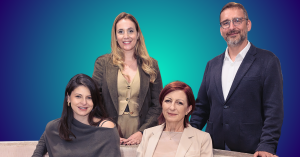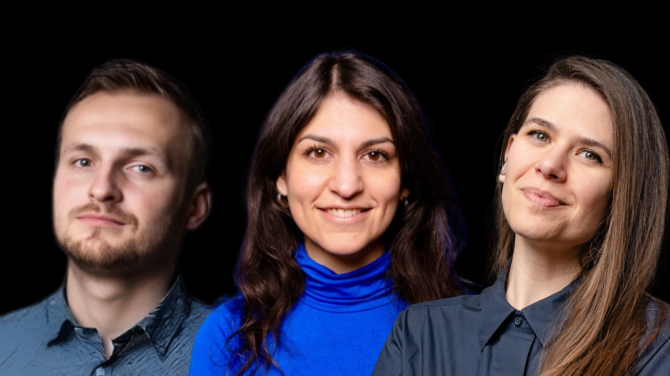Don’t we all enjoy having a full fridge? Or ordering a three-course meal when eating out just to pamper ourselves while being perfectly aware that we cannot possibly consume even half of the food on the table? Or maybe having tables full of appetizers catered to our events just because it looks good on pictures?
Simple answer – yes, we do. It is human to enjoy abundance. However, this “consumer society” demand leads to excess production, inefficient resource spending, and eventually to piles of perfectly fine food going to the landfills every day.
Worldwide, companies, projects, and individual zero-waste influencers are trying to educate consumers about the damage that we cause to nature, and create solutions that make it easy and incentivizing for consumers to reduce their food waste. One such project on the Bulgarian market is the platform Sofia2Go that aims to reduce food waste in the HoReCa sector by providing restaurants, hotels, and cafes with an independently managed marketplace where they can sell food that was produced but not sold during peak times.
Together with the two co-founders of the food waste reduction marketplace, the sisters Deni and Sissi Simeonovi, the Recursive team explored what goes into building a food waste business, what is the business logic behind the models of such projects, what was the path of Sofia2Go up to this point and what are the general trends in the HoReCa food waste industry in Bulgaria.
Foodies with a mission
The story of Sofia2Go begins in 2016 when the two sisters returned back to Bulgaria after living in Portugal. Sisi Simeonova shares that while they were residing there, they loved eating out and finding new places via a trendy Instagram food account. “When we went back to Sofia we started the Sofia2Go Instagram account with the same goal. My sister and I have always been big foodies and we enjoy discovering new places with fresh and quality food. That is why this Instagram account turned into our foodie journal and through which we showcased all the restaurants which we thought deserved more exposure,” she explains.
“The number of followers was growing fast and at some point, we realized that we should develop a different focus of our project and utilize this followers base to actually reduce the food waste in the HoReCa industry. So after a couple of years, we are on our way to becoming a foodtech company that contributes to solving an important social and environmental problem”, Sisi Simeonova highlights.
Before their go-to-market efforts, the Sofia2Go conducted market research to test whether local food aficionados would be willing to buy end-of-life quality food, and how would local restaurants respond to the demand. Right now, Sofia2Go is in the MVP phase and is aiming to validate the product-market fit and figure out how to optimize the operations of its platform.
‘Our goal is to become tech-oriented and build a fully functional foodtech solution which is now possible as we have a CTO, Lyubo Varbanov. Together we are working on the next version of Sofia2Go – a food waste reduction app and web platform.
The business model of food waste reduction platforms
Simeonova outlines that just like all marketplace business models, the food waste reduction platforms which directly connect restaurants to consumers operate with three different business models: taking a commission fee from vendors or charging the end-users, or a mix of both.
In the case of Sofia2Go, it offers its intermediary services for free to end-users, while monetizing by taking some form of dividend from the vendors. As explained by her, some food waste reduction intermediaries set the price and a minimum discount rate, while others, just like Sofia2Go, give restaurants the full freedom to determine the price and the discount at which they will offer meals on the platform.
When it comes to scalability, Simeonova shares that it all falls down to automatization and ensuring that the platform does not require any external support and can effectively and directly connect the restaurants with users.
The value proposition for vendors and users
“By working with such food waste reduction platforms, restaurants benefit mainly from the fact that they are able to make money out of meals that would otherwise be thrown away. This means that they are either making some extra revenue or are at least making no losses,” she explains. Moreover, being part of a marketplace, restaurants are offered the opportunity to become more well recognized and receive more exposure to new consumers. Therefore, they are increasing their client base and are winning the loyalty of clients because they are positioning themselves as sustainable businesses.
On the other hand, consumers are given the chance to experience high-quality restaurants and try out new trendy places for less money, while making a positive environmental impact. Simeonova shares that the way Sofia2Go operates resembles an interesting mix between influencer marketing and sustainably-oriented business. Even though the main aim of the project is to reduce the amount of wasted food in the hospitality industry, there is an influencer element that strives to make the experience trendy in the eyes of consumers.
Next on the product roadmap of Sofia2Go?
Currently, the project has over 7700 followers on Instagram, thanks to whom the platform was able to save around 200kg of food during the last three months. The restaurants which partner with Sofia2Go are currently 10 and Sofia2Go expects the number to increase and expand beyond Sofa and Bulgaria.
“In the long-term, we have an idea to expand our circular economy solutions and reduce the waste of other products which are not exclusively food. However, as of now, our core goal is to develop our platform to the moment when people recognize Sofia2Go is the marketplace for food waste reduction in Bulgaria,” shares Simeonova. She adds that in order to make the experience more attractive for consumers, food waste reduction businesses can optimize their models by offering a wider variety of products and expanding beyond the HoReCa sector by going into partnerships with supermarkets as well.
Last week Sofia2Go was selected as one of the 30 semi-finalists of the European Social Innovation Competition out of 560 applications submitted by teams from 17 EU countries. Now, their team will receive support from experienced sustainability innovators who will help them further develop their idea through a series of lectures and dedicated workshops.
Simeonova shares that at a later stage of their development and depending on the advancements in the regulations around food donations, they would like Sofia2Go to engage in more social donation initiatives as well.
What is happening in the Bulgarian food waste reduction sector?
Simeonova points out that according to research from the HoReCa sector in Bulgaria, every year more than 100M meals of quality food go to waste. And this on average means that every restaurant throws away 7 portions a day. Additionally, data from the European Commission shows that roughly, Europe wastes 12M tonnes of food in the HoReCa sector alone every year which equates to almost 20 kg per capita. The SEE leader in food waste is Greece with nearly 30kg of wasted food per capita, followed by Romania, Bulgaria which wastes a bit more than 10kg of food per capita annually in the HoReCa sector, and Serbia which is the EU country with the least amount of food wasted in restaurants.
Moreover, numbers become times higher when we consider the total amount of food wasted both in the HoReCa sector and in households – 88M tons in total for Europe which is a fifth of the total EU food production. According to estimates besides the devastating environmental impact, non-consumed food has a significantly negative economic impact as the cost of production of food that goes to waste every year is €143B.
If we have to conclude why food waste happens in the first place, it is because of excess production through the food value chain. So what are the other startups and initiatives in Bulgaria that are trying to fight against food waste and reduce its negative impact across the whole chain?
The all-in-one waste-free kitchen manager CoZZo is an app that keeps track of what goes into the users’ fridges and pantries and when it expires in order to reduce household food waste. It also helps with shopping and cooking planning for optimal use of the purchased groceries. FoodObox is also an app that has a similar business model and mission as that of Sofia2Go – it helps restaurants, hotels, and cafes sell their excess meals at a discount by preparing special boxes for the users of the app.
Another intriguing Bulgarian web and mobile app for food waste reduction, FoodChain, uses blockchain to build the first decentralized platform for the shared food economy. The app uses FoodChain Token which is a virtual currency token based on Ethereum that ensures low fees, fast transfer, and transparency in food trade. This allows users to find food nearby that is close to the expiration date and buy it for up to 70% less than the original price.
And when it comes to the last stage of the food value chain – the waste stage when food was already thrown away, there are again businesses that are trying to optimize the food waste by using circular economy solutions. A more well-known Bulgarian company with an already established business model is the B2B company Nasekomo that uses organic waste to produce insect products for the feed and agriculture industries. Another project called City Experimentarium focuses on educating people on the importance of composting and places shared composters around restaurants in Sofia.







